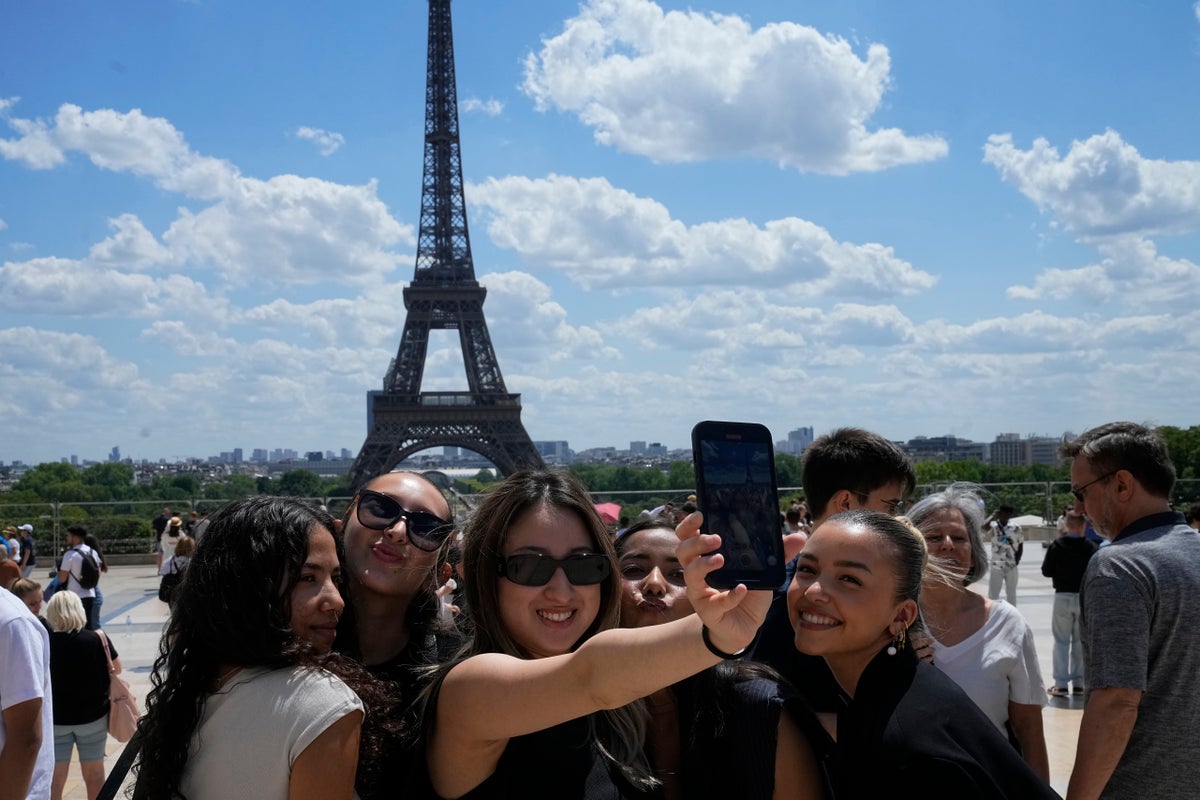
The Eiffel Tower, chateaus in the Loire Valley — and cars on fire. Tourists to France faced a new reality during an eruption of nationwide anger following the police killing of 17-year-old Nahel Merzouk.
While hotel owners cite a drop in bookings in some areas, the French government insisted on Thursday that the overall picture for the tourism industry remains rosy, and promised a “great season” for visitors despite the simmering discontent.
Officials from the Ministry of Economy and Finance held a meeting Thursday with representatives of the tourism industry to discuss the consequences that the nationwide unrest following Nahel's death has had on France’s tourist activity and international image.
The fatal shooting sparked anger across France and stirred up already existing tensions about racial and class-related discrimination in policing, which often targets neighborhoods with low-income families with origins from former French colonies. The violence ebbed this week, but the roots of the tensions remain.
The Union of Hotel Trades and Industries (UMIH) reported that hotel cancellations in Marseille had reached up to 30% in the wake of the protests, and anticipated that attendance at bars and restaurants in Paris could plummet by half.
Local and national reports cited international flight and hotel cancellations driven by fear, added to the property damages that businesses suffered during several days of violence.
But the minister overseeing trade and tourism, Olivia Grégoire, refuted those numbers during Thursday's meeting, which included representatives from UMIH. She called the figures “pessimistic and wrong," yet acknowledged that the government is currently unable to provide official data about damage caused.
The ministry vowed to help tourism establishments impacted by the violence, which included days of clashes between young people and police, the burning of cars and public buildings, and the looting of stores. Incidents hit about 500 cities and towns around France, including Paris.
Some of the measures include postponing or erasing debt for those businesses and offering partial unemployment benefits to employees who are unable to work because of the unrest.
“Let’s not add anguish to anguish, and problems to problems,” Grégoire said. “We have everything to make this season a great season."
She said that there's "no wave of cancellation or postponements of flights from or to Paris.
“The fact is that restaurants, hotels, and shops are open today in Paris, Marseille, and Lyon, and this is the most important thing.”
The tourists thronging to the French capital this week took extra precautions, but seem largely unfazed.
“Basically, we’re looking around and making sure that where we are seems safe (and) if there’s any police presence,” said Valisha Ismail, a 40-year-old visiting from South Africa. “If there’s a large crowd, then we try to move away from that.”
Others said they felt safe because of the prominent police presence in the streets of the French capital. Heavily armed officers patrolled past Dior and Cartier boutiques on the Champs-Elysees avenue this week as part of an exceptional, 45,000-strong nationwide police deployment that led to more than 3,000 arrests — and new concerns about police excesses.
Johan and Jenna Haukbrauer, a couple visiting from Germany for the first time, said they were aware of what was unfolding but were nonetheless not discouraged.
“We checked the news, but we were fine because there are lots of policemen here and security forces, so for us it’s fine,” Johan said.
Gilda Stanbery, visiting her daughter outside Paris, said they weren’t able to come downtown during the most intense days of rioting. But a few days later, they could, and she said, “We are here now.”







